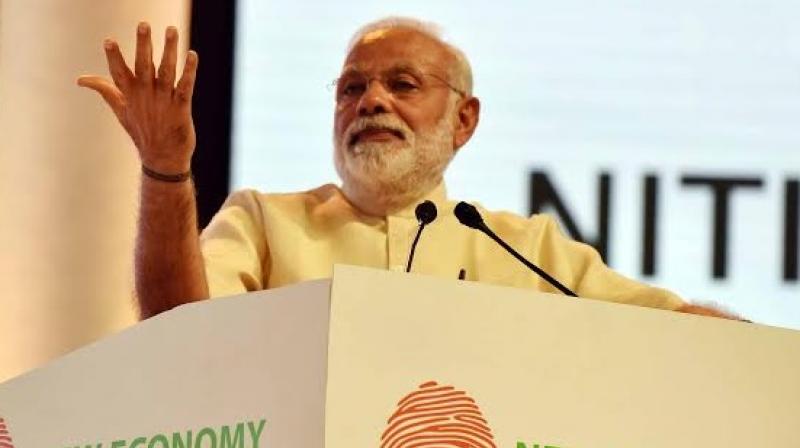Telangana: Quota hinges on Modi's approval
If the state government wants to provide reservation in excess of 50 per cent, it has to get the enhanced quota validated by Parliament.

Hyderabad: Despite Chief Minister K. Chandrasekhar Rao’s decision to convene a special session of the Legislature to enact the enhanced reservation for backward sections among Muslims, the implementation of law is subject to the BJP-led Central government’s approval.
As per the Supreme Court’s ruling in the Indira Sawhney case, reservations contemplated in Clause (4) of Article 16 of the Constitution cannot exceed 50 per cent.
If the state government wants to provide reservation in excess of 50 per cent, it has to get the enhanced quota validated by Parliament through Article 31 (B) of the Constitution and get it included in the Ninth Schedule of the Constitution. The incorporation of a law in the Ninth Schedule protects it from judicial scrutiny.
This, however, does not appear to be possible because the Narendra Modi-led government said that it would not allow any reservation based on religion. The state BJP too has been opposing this move.
The issue could also face several judicial headwinds. The law providing four per cent reservation to Muslims is already pending before a Constitutional bench of the Supreme Court and the validation of 69 per cent of reservation in Tamil Nadu under Article 31(B) is with the apex court for judicial review.
After accepting the Telangana Back-ward Classes Commission report on Muslim Reservations, on April 12, the Chief Minister reiterated his intention to enhance reservation to Muslims. He said he would approach the Centre for allowing Telangana to implement reservation on the lines of seven states where the percentage of reservation exceeded the benchmark set by the Supreme Court.
Currently, Tamil Nadu is providing reservations of 69 per cent, Jharkhand 60 per cent, Maharashtra 52 per cent, Arunachal Pradesh, Meghalaya and Nagaland 80 per cent — All these are more than 50 per cent cap set by the apex court.
Though the TRS has promised 12 per cent reservation to backward segments among the Muslims, the BC Commission recommended nine per cent. The Chief Minister announced that the quantum of reservation would be finalised at the next Cabinet meeting to be held on April 15.
Right now, the total percentage of reservations in the state is 50 including 4 per cent reservations to Muslims under the BC-E category. If the government opts for 12 per cent quota, the percentage of total reservation will reach 58 per cent, which is more than the apex court cap.
Quota question
- The Supreme Court imposed cap on overall reservations and the Centre’s reluctance to provide cover from judicial scrutiny makes TS Muslim quota unpredictable.
- Reservations for Muslims and Christians were first introduced in Kerala, which was then Travancore-Cochin state, in 1936.
- The reservation for backward Muslims in government jobs has existed in Bihar, Karnataka, and Tamil Nadu. West Bengal added 10 per cent quota for backward Muslims.
- Reservations for Muslims in AP came into force in 2007. It is in force in AP and TS subject to an interim order of the Supreme Court, which restricted quota to 14 classes of Muslims.
- Muslims in other states such as Bihar, MP, UP, Rajasthan, Jharkand don't have separate reservation, but they are included in the existing list of BC categories.
- They enjoy the same privileges as others in these categories enjoy.
Kerala: 12 Per cent
West Bengal: 10 Per cent
Karnataka: 4 Per cent
Andhra pradesh: 4 Per cent
Telangana: 4 Per cent
Tamil Nadu: 3 Per cent
Bihar: 3 within 27% OBC quota

